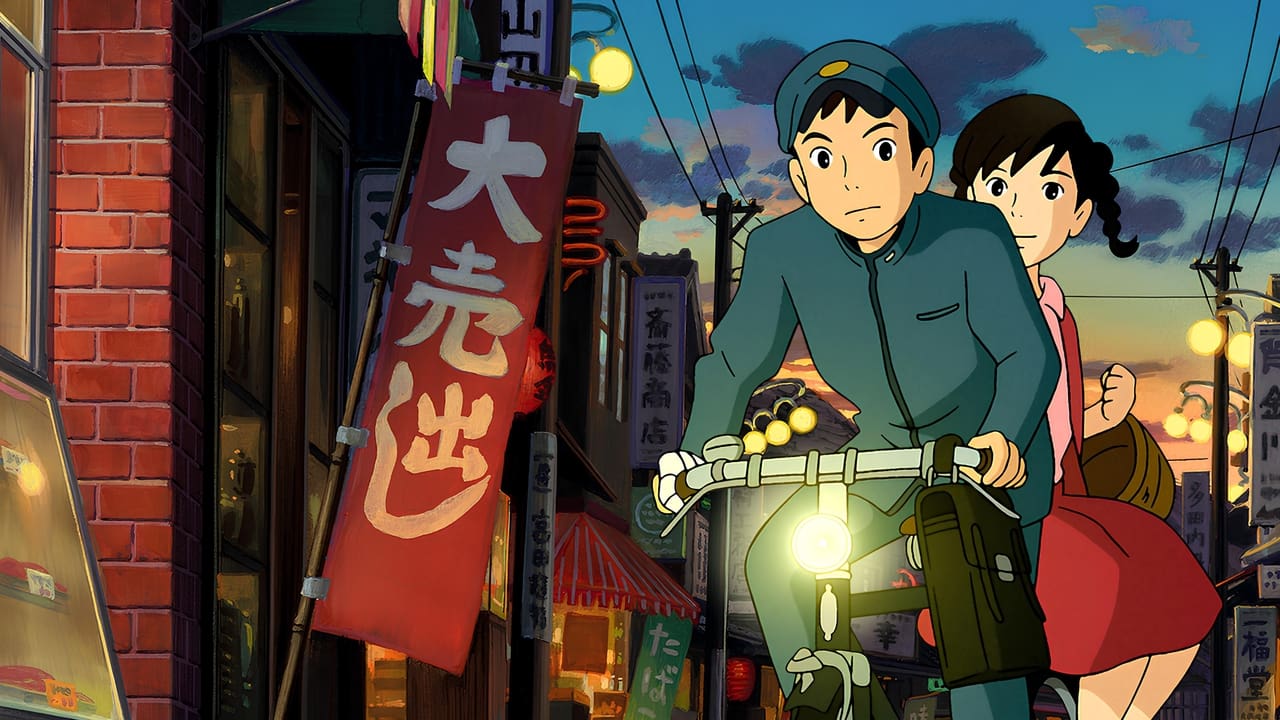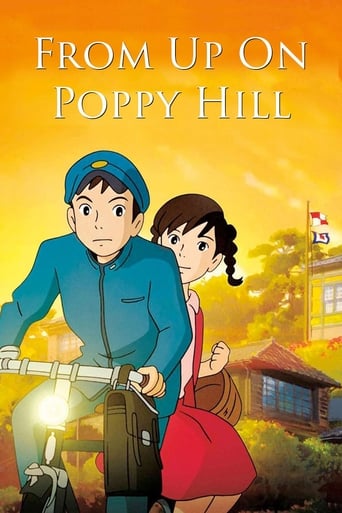

Set during the 1960s, this Studio Ghibli production focuses on a teenage girl who helps her peers save a clubhouse from demolition while falling in love with a shy classmate. The animation is beautiful as per Ghibli par and the film benefits from a great music score as well as some catchy songs; as a narrative though, the film is not much more interesting than it sounds. Conflict arises as she begins to wonder whether she could be related to her new crush, but the mystery of his parentage is never particularly enticing and the fixing up of the clubhouse feels a little too much like an 80s comedy subplot; it even comes with an 80s style montage sequence as the teens clean and sweep the place. The setting is certainly interesting though with lots of excitement and uncertainty in the air regarding the impending Tokyo Olympic Games and it is hard not to wonder whether the film may have worked better with this theme more in focus. Those who do not mind slow-paced, leisurely dramas will possibly find quite a bit to like here; those who appreciate the magical creatures, imaginative tales and zany humour that Ghibli is best known for though should probably approach with some caution.
... View MoreGreat Film. Surprisingly unappreciated. Perhaps because it was the second film of Goro Miyazaki whose first wasn't appreciated either (though it wasn't that bad).This is a simple enough story. The characters are simple but strong. The love story is very innocent. More importantly it tells a story. You don't need hard and fast action to make a film entertaining, nor do you need lightning quick pace of the film. What you do need is a good story line with good characters. This has both. All these features make it a treat to watch. The film progresses slowly but it is never boring. It's one of the films that is very real. Most Ghibli films will have fantasy elements about them. However, this one doesn't. This is the plain and simple story about determination and love, loss and remembrance.Good film. Must see for someone who enjoys slow, simple films.
... View MoreIn 1963 Yokohama, high school girl Umi puts out signal flags to passing ships, partly in remembrance of her captain father who died at sea. While getting involved with a project to save a local clubhouse, she meets and falls in love with fellow student Shun. But Shun's father was also lost at sea, and he carries the same photograph as Umi...This animated movie from Studio Ghibli has no fantasy elements: it is a simple drama with several intertwined threads. The animation is satisfactory without being dazzling, the backgrounds are lovely, and the film is, at times, very moving.I enjoyed it a lot.
... View MoreAfter having watched Jambareeqi's review for this film, I was intrigued to see it. Whilst browsing the Channel 4 website, I saw that this was showing on Film Four today and this was my very chance of seeing it. As I watched this film, it offered me more than I expected and while the first half hour ran at a brisk pace, the film started to drag on from the middle.The animation is consistent in terms of its style fitting in with that from Hayao Miyazaki's films and had sharp colouring, subtle, humanistic movements (in particular characters cleaning, cooking and raising flags) and great uses of lighting and cel-shading but it was a little choppy and slow in places. The backgrounds were beautifully designed and reminiscent of those from 'Ponyo' with regards to the sea. Another positive about the animation is that the character's clothes, hairstyles (particularly Sora's) and vehicles are true to the style of the 1960s. Not only did the story include its basic premise of high school students protesting against the demolition of a club house but it also included dramatic family matters such as Shun revealing he is actually Umi's adoptive brother when she suspects he doesn't love her and Umi's mother telling the moving story of how Shun got adopted. Although I'm not a fan of soap operas such as 'EastEnders' and 'Coronation Street,' these family issues did remind me of a typical soap opera dilemma and it was interesting to see them in animated form. While this film has several realistic elements, the most fantastical part was Umi's dream of her wandering against a sunset-lit background and crying when she was little and when she is older, her father comes home. This dream sequence had the perfect balance of fantasy and reality because it was executed as a vivid dream and it nearly reduced me to tears. One weakness with regards to the story is that it has a lot of filler that slowed down the second half considerably until the announcement of the clubhouse not being demolished. Despite the filler and the uneven pace, the ending was more steadily paced and was not as abrupt as I anticipated. The music was unique for the film's animation style and fitting for its setting and I especially liked the jazzy piano-led pieces. The songs were quite nice as well, especially the one playing during the ending and the closing credits - it was beautifully written as well. Although the version I watched was in its original Japanese language with a hint of unrecognisable Russian as the TV announcer on Film Four stated, the voice acting was expressive and a lot of the dialogue was engaging, which was helped a great deal with the English subtitles. While the dialogue is mostly dramatic, the funniest part of it was when Shun was referred to as "a live wire" then it was questioned if he was the "electrician's son" - that subtle joke certainly raised a chuckle. Despite the weaknesses with the pacing, filler and somewhat inconsistent animation quality, this is the most lifelike Studio Ghibli film I have seen to date and it makes a refreshing change from the studio's more fantastical films. I would also like to see the English dub for this to see how it compares to the original Japanese dialogue. 8/10.
... View More